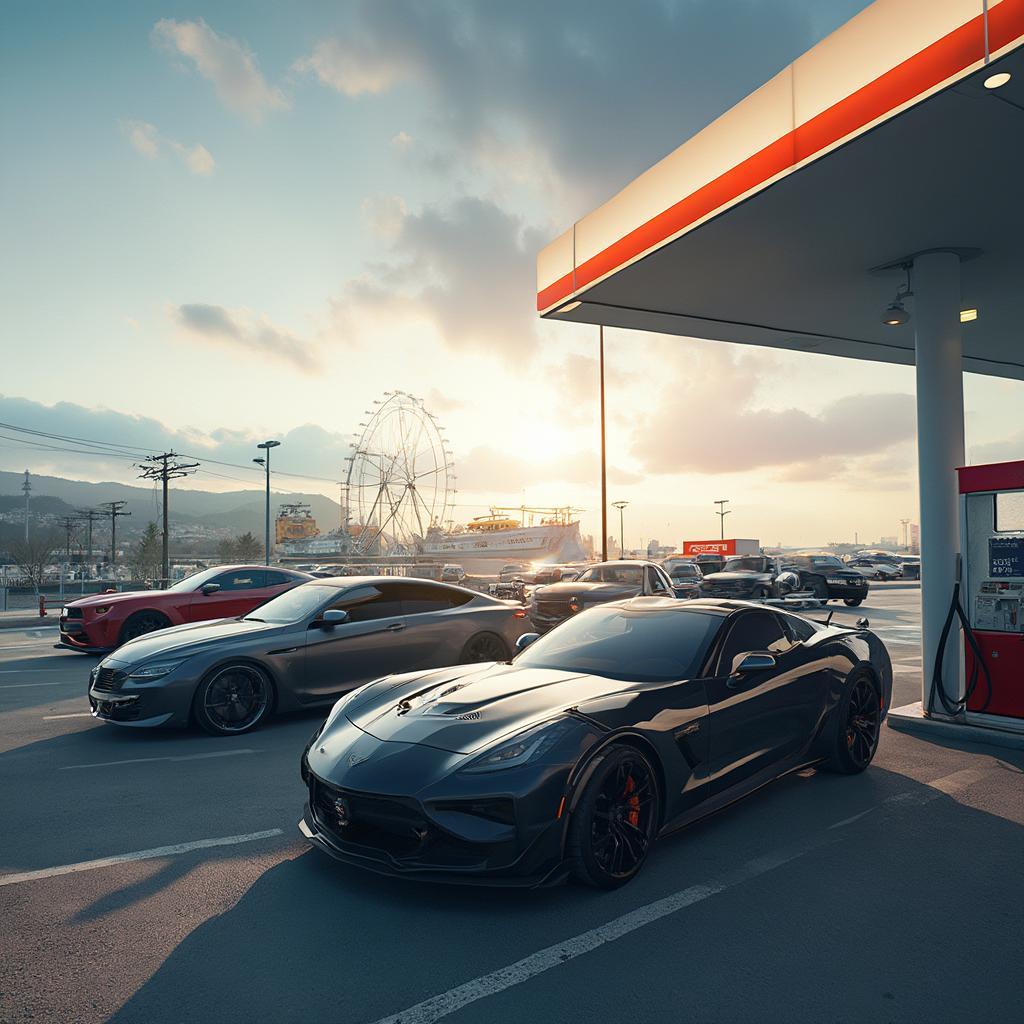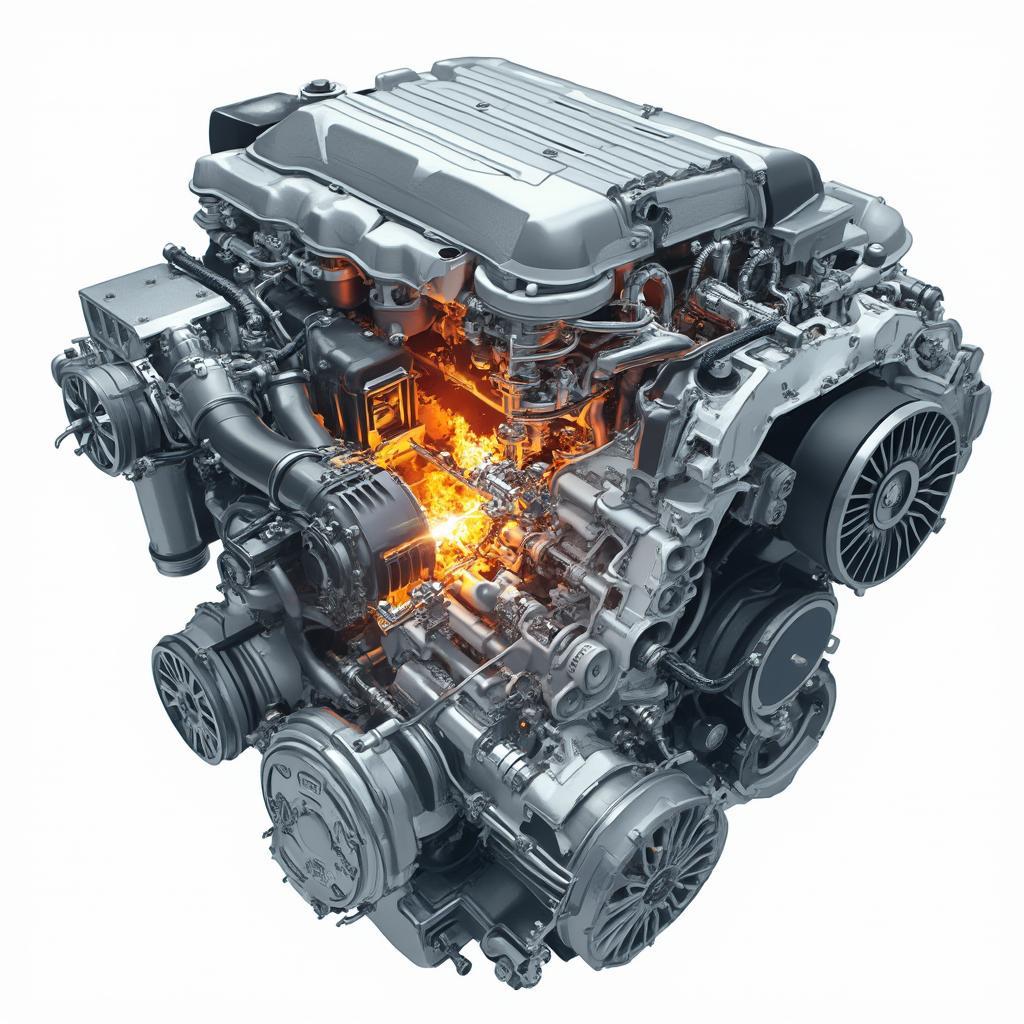Your cart is currently empty!

What Type of Cars Use 95 Unleaded Petrol?
Understanding what type of cars use 95 unleaded petrol is crucial for maintaining your vehicle’s performance and longevity. Choosing the right fuel isn’t just about filling up; it’s about ensuring your engine operates efficiently and avoids potential damage. This comprehensive guide will delve into the specifics of 95 unleaded petrol, which cars require it, and why it’s essential for certain engines.
Decoding 95 Unleaded Petrol: RON and Engine Performance
95 unleaded petrol refers to its Research Octane Number (RON), a measure of a fuel’s resistance to knocking or pre-ignition. Higher RON fuels like 95 are designed for high-performance engines, those with higher compression ratios, turbochargers, or superchargers. These engines require a fuel that can withstand the intense pressure and heat generated during combustion without detonating prematurely. Pre-ignition can lead to engine damage, reduced performance, and poor fuel economy.
Why Your Car’s Manual is Your Best Friend
The most reliable source for determining the correct fuel for your vehicle is your owner’s manual. It will clearly state the recommended RON, whether it’s 91, 95, or even higher. Ignoring this recommendation could have detrimental effects on your engine.
High-Performance Vehicles: The Primary Users of 95 Unleaded
Generally, vehicles with high-performance engines, including sports cars, luxury cars, and some SUVs, require 95 unleaded petrol. These engines are designed for power and efficiency, and using a lower RON fuel can compromise both.
 Sports cars and luxury vehicles often require 95 unleaded petrol for optimal performance.
Sports cars and luxury vehicles often require 95 unleaded petrol for optimal performance.
Turbocharged and Supercharged Engines: The Need for 95
Turbocharged and supercharged engines force more air into the cylinders, increasing the pressure and heat within the combustion chamber. This requires a fuel with a higher resistance to knocking, making 95 unleaded petrol the preferred choice. Using a lower RON fuel in these engines can lead to detonation, potentially causing damage to pistons, valves, and other engine components.
Modern Engines and Efficiency: The Role of 95 Unleaded Petrol
Even some non-high-performance vehicles with modern, smaller, more efficient engines may specify 95 unleaded petrol. These engines, while not as powerful as their turbocharged counterparts, often operate at higher compression ratios to maximize fuel efficiency. 95 unleaded helps prevent knocking and ensures smooth, efficient combustion in these engines.
 Modern, smaller, more efficient engines often benefit from using 95 unleaded petrol.
Modern, smaller, more efficient engines often benefit from using 95 unleaded petrol.
Can I Use 91 Unleaded Petrol in a Car That Requires 95?
While you might be tempted to use 91 unleaded petrol to save money, it’s generally not recommended for vehicles that specify 95. Modern cars have knock sensors that can detect pre-ignition and adjust the engine’s timing to compensate. However, this constant adjustment can reduce performance and fuel economy, negating any potential savings. In the long run, continually using the wrong fuel can lead to more serious engine problems.
What if I Accidentally Use the Wrong Fuel?
If you accidentally fill your car with the wrong fuel, don’t panic. If it’s just a small amount, topping it off with the correct fuel can often mitigate the issue. However, if you’ve filled the tank with the wrong fuel, it’s best to avoid starting the engine and contact a mechanic for advice.
Conclusion
Choosing the correct fuel, like 95 unleaded petrol, is essential for maintaining your car’s performance, efficiency, and longevity. Always consult your owner’s manual to determine the recommended fuel for your vehicle. While using a lower RON fuel might seem like a way to save money, it can ultimately lead to reduced performance, decreased fuel economy, and potentially costly engine damage. Using 95 unleaded petrol in cars designed for it ensures optimal performance and protects your investment.
FAQ
- What does RON stand for? RON stands for Research Octane Number.
- Why is 95 unleaded petrol more expensive than 91? The refining process to achieve a higher RON is more complex, contributing to the higher cost.
- Can I mix 91 and 95 unleaded petrol? While mixing won’t cause immediate damage, it’s best to avoid it and stick to the manufacturer’s recommendation.
- What are the signs of using the wrong fuel? Knocking or pinging sounds from the engine, reduced performance, and decreased fuel economy can indicate you’re using the wrong fuel.
- Will using 95 unleaded petrol in a car that requires 91 damage the engine? No, it won’t damage the engine, but it won’t offer any performance benefits and is generally unnecessary.
- How do I know what fuel my car needs? Your owner’s manual will clearly state the recommended fuel type.
- Where can I find 95 unleaded petrol? Most petrol stations offer 95 unleaded petrol.
For further assistance, please contact us via WhatsApp: +1(641)206-8880, or Email: [email protected]. Our customer support team is available 24/7. We also have other informative articles on our website covering topics like fuel efficiency, engine maintenance, and car care tips. Check them out to learn more about keeping your car in top condition.

Leave a Reply